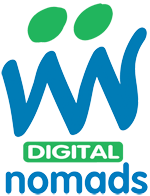LocalGovCamp
On Saturday 18th June I attended LocalGovCamp2011 in Birmingham where I found myself to be the only Assistant Director and most senior local government officer present.
I had attended the first LocalGovCamp in Birmingham in 2009, not knowing quite what to expect. I was impressed with the overwhelming enthusiasm and interest in developing creative solutions to everyday problems. The ‘grass-roots’ feel of the event made a refreshing change to the polished corporate offerings I’d grown so accustomed to. I learned a lot from attendance and subsequently presented proposals to my Chief Executive to enhance our use of social technologies, including an innovative ‘BarnsleyBUZZ’ enterprise social media pilot and an ‘Innovation Week’.
I found my use of online networks, particularly Twitter, grew quite rapidly and I connected with many interesting and innovative people who seemed to really care about local government and about making a difference to people’s lives. You could say I caught the bug. Along with a fellow village resident I’d met online, Kevin Campbell-Wright (@kevupnorth), I organised LocalGovCamp Yorkshire and Humber last year. We were really keen to move the game on and to make our unconference a little different. We had two main aims; to attract [some] senior managers and to engage with elected members. Regrettably, despite our best promotional efforts, supported by the region’s Chief Executive’s, we failed spectacularly on the first point.
The event was still judged a success and the online conversation had a social reach in excess of 35,000 people, but we failed to interest the movers and shakers, the people of real influence in local government who by and large are still living in an analogue world.
We were more successful on the second aim and ran interactive sessions for Councillors with the assistance of Carl Whistlecraft and Steven Tuck from Kirklees (@gr8governance and @steventuck) and Councillors Simon Cooke from Bradford and Tim Cheetham from Barnsley (@simonmagus and @cllrtim).
So, I attended this year’s event hoping that the pressures upon local government finances would have encouraged more senior officer participation. I’d imagined more of my peers would be searching for innovative and creative solutions to the problems we face, leaving no stone unturned so to speak. I was a little disappointed to find otherwise.
The 200 or so attendees again demonstrated that there is genuine talent within the sector and an interest in innovation that transcends the traditional 9 to 5. However, it was all too apparent that many of these people are held back, they are blocked from affecting change, from doing things differently and from doing different things. In many cases they are frustrated by their lack of influence and by local government’s resistance to change and bottom up innovation.
It seems clear to me that this needs to change. We need to be more agile, more adaptive and better able to encourage and nurture grass-roots, low cost creativity. I’m less clear on how we actually do that.
Local Government has barely acknowledged the many opportunities presented by digital and social technologies. The scale of disruptive change is not fully appreciated by some senior decision makers. Meanwhile citizens and communities are increasingly living in digitally enabled ways and their expectations do not map onto our largely 19th century models of service delivery.
LocalGovCamp left me wondering how we can translate grassroots innovation and enthusiasm into change across local government. It seems to me that will be important in shaping our future.




